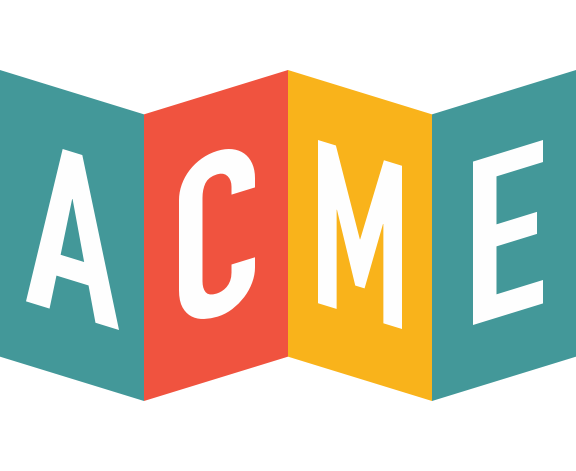
Benefits of Open APIs: Agile Ticketing Solutions Grow Your Business
Conversations around APIs are not as prevalent as those meaty discussions around cyber security or cloud or software. However, open API has zoomed to one of the top-5 reasons people choose ACME as their online ticketing solution.
When a company like ACME offers open APIs to their clients, it liberates a world of platform flexibility and customization.
“An open API … is a publicly available application programming interface that provides developers with programmatic access to a proprietary software application or web service. APIs are sets of requirements that govern how one application can communicate and interact with another,” according to Wikipedia.
ACME knows that each cultural institution and attraction must maintain their own unique brand and seamless operations while also being reliant upon the synergies between multiple other platforms. Open API access and communications fluidity helps ACME customers break out of limiting parameters to achieve a premier interactive solution customized to their brand image.
Connecting Best-of-Breed Systems to Create a Super Platform
By allowing two different platforms to talk with another, open API powers more robust communication (data flow). Using open APIs, ACME can plug into many different best-of-breed platforms to create a rich ecosystem—a super platform, if you will. For example, this may include tying ACME’s online ticketing expertise to Salesforce’s CRM mastery as well as Raiser’s Edge’s donor management savvy, enabling a two-way, open flow of data, unobtrusive to the end user.
ACME’s Robust Ecosystem
ACME’s ecosystem of applications that utilize the API layer include:
- Back Office web application
- Consumer web application buying flows (pick calendar, event, place order with tickets and inventory add-ons)
- iOS Point of Sale (POS) application
- iOS Access Control application (scanning to check-in or manual check-ins)
This distinguished ecosystem enables API users access to the same functionality as ACME’s applications with which to create tailored-to-their-needs applications. Primary functional components used by clients include:
Event Management: Design/update event templates that control the ticketing inventory; default settings enable users to construct events, set prices and schedules.
Users + Departments: Definition of users—their roles and departments.
Pricing + Ticket Types: Definition of ticket types + their assignments to price lists, configurable per sales channel.
Checkout: Based on ACME’s shopping cart, or, without a cart, by dispatching the full order. Series of preliminary steps precedes checkout, enabling passage of the proper events and pricing information.
Visitors: Information about cultural institution’s visitors.
Order Management: Orders, which are generated via checkout, are updated amid other operations; e.g., Rebook and Refund. An order consists of one or more order items that are grouped by the event instance and ticket type, as well as inventory add-ons.
Transactions: Capturing every action performed as a component of order processing, transactions include Sale, Payment, Refund Sale, Refund and Rebook Sale.
Offline Transactions: Capturing every action performed as part of the offline order processing, offline transactions include Upload, Retry, Search and List.
POS Configuration: Based on the terminal ID, POS can save/retrieve their configurations.
Add-Ons: Lightweight inventory items that can be added to an order for transaction processing.
Resource Management: Custom fields enable designation of custom resources (staff, facilities, equipment types), which may be assigned into the event templates calendar.
Account: Houses the venue’s approved entities; i.e., entities authorized to purchase venue inventory from either inside sales or their own website that exposes the venue events.
Discount Management: Leveraged to link a reseller category to a price list associated with the event, discount management enables discount definitions. Ensures consistent discounts are applied across all resellers within a category.
Analytics: By exposing all object relations (data resources) across the application, analytics allows filtering, grouping and summarizing various fields within the data source. Examples of data sources include transactions, events and resources.
Settings: Related to the venue in regard to opening hours, holidays and the like.
Payout/Settlement: Automated payout/settlement to ACME tenants.
Delegating Your Way to Innovation and Growth
Organizations can focus on important branding and operational initiatives, while delegating other critical functions of their ecommerce site to specialists such as ACME, a platform that in turn, connects to every other system in the organization: financial, CRM, retail, etc. So, if someone donates thousands of dollars to the museum, and that donation flows into Raiser’s Edge, it will also flow into ACME, eliminating the need for the organization to hire a full-time data entry employee.
In sum, ACME’s inter-application connectors and open APIs remove the barriers that have hobbled data sharing goals in the past. Simplifying data sharing with other enterprise applications enables cultural institutions to select the best, most cost-effective applications tailored to their business functions. By doing so, organizations not only improve their agility and performance, but they also catapult their competitiveness in a world with elevated expectations in regard to innovation, speed and overall service.
By contacting ACME today for a no-obligation demo, you can witness up close, the robust, multilayered value we offer. Not only can we help simplify your business, but as partners to your business, we can also help you innovate and grow.
